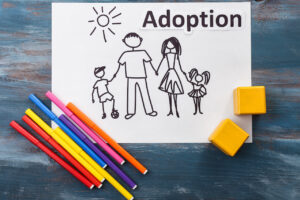Infertility Gardens – Finding Life-Affirming Connection During Infertility
“Gardens also provide a safe haven in which to heal and renew ourselves… In a garden, we can restore our inner harmony and balance as we gain some measure of control over our lives.” ~ Connie Goldman & Richard Mahler
I recently read a really lovely article about how an Australian cancer survivor, Perri Chaplin, leaned into gardening and growing a vegetable garden during her recovery process. Perri, who underwent a double mastectomy, shared that what began “as a way of ensuring [her] family had a sustainable food supply while reducing trips to the supermarket,” at a time when she was immune-compromised due to the chemo treatment, soon become a much bigger part of maintaining her wellbeing. She said: “It’s been my therapy, rehabilitation, and my all-round happy place to take the anxiety of the outside happenings of COVID away. It’s brilliant.” Perri also spoke of how this simple, yet life affirming practice, mirrored her body and strength bouncing back after all it had been through, saying that: “My hair grew back when my seeds grew back. It was so nice.”
As someone who is passionate about both nature and gardening, I could definitely relate to Perri’s experience. Gardening (also called horticulture therapy) has been a significant part of balancing my own wellbeing, especially when it comes to cultivating peace of mind during the stressful times of infertility in recent years. The soothing touch of soil, planting seeds and tending to the plants as they grow is just so therapeutic for me. Whether I’m starting cuttings and watching them take root or planting winter herbs in the cool wet earth after the rain, it just grounds me and gives me joy. I often think that this is because gardening feeds that natural desire to create new life and the satisfaction of seeing things growing and thriving, which is a desire that feels unfulfilled when dealing with fertility challenges. It offers the breathing space to anchor oneself in the present moment, away from fears, worries and stresses for a little while.
A couple of years ago, I was pleasantly surprised to learn that I wasn’t alone when it came to delving into horticulture therapy to help balance out the impact of infertility in my life. Lucy Chamberlain wrote a moving opinion piece for ‘The Guardian’ where she spoke about how gardening provided her with a lifeline in the midst of subfertility and failed IVF. Her story reaffirmed my belief that the experience of tending to garden life brings with it a quiet sense of inner peace that my life would be empty of otherwise. I suspect that like me, it became her therapy, perhaps because growing things is a fulfilling way to create and nurture life, especially at a time when her body was unable to.
“When I see my garden flourish, I regain my resilience, my balanced perspective, and my peace of mind. The garden has proven itself as my best medicine, my partner in recovery and restoration. Through gardening, I can always find my way back into a healthy resonance and a satisfying harmony with the world.” ~ Connie Goldman & Richard Mahler
Dr. Constance Shapiro, author of ‘When You’re Not Expecting – An Infertility Survival Guide, mentioned what she termed ‘infertility gardens’ as one way clients experiencing infertility can draw on “the healing balm of nature” to “calm sadness and grief”. In a Psychologies Today article, Shapiro said the following:
“Infertility and sadness are intertwined. Yet the beauty of nature can be a cushion against grief associated with the losses of infertility. As the scenarios above suggest, our own creativity in using the bounty of blooms and bulbs to create a garden can be a different approach to healing from sadness.”
Renowned gardening personality, Monty Don, has been vocal about how gardening has helped with his depression struggles. There is science to support his claims too. Research shows that exposure to the microbes in soil has mental health benefits, and that sunlight, fresh air and the light exercise we get while gardening also boosts our moods, relieves stress and anxiety, and aids relaxation.
Upon further investigation, you may find that horticulture therapy has been recognized as a treatment modality under the umbrella of psychological since the 19th century. In addition, early documents and literature tell us that the first known healing gardens date back to approximately 10,000 years ago, in 2000 BC Mesopotamia. Gardens were used for their aesthetic and therapeutic function in ancient Chinese and Japanese culture. Healing gardens were also a prominent feature in many monasteries who offered curative treatments to surrounding communities during the middle ages in Europe. In more recent times, the rehabilitative care of hospitalized war veterans in the 1940’s/50’s facilitated the expansion and acceptance of horticulture therapy as a remedial practice. It is applied quite successfully as therapy for children, the elderly, Alzheimer’s patients and anorexia patients in various treatment facilities around the world, engaging patients in tactile and sensory activities that improve their sense of wellbeing.
So, it does make sense that gardening could play a role in bringing both comfort and anxiety relief when you’re looking for ways to cope with infertility. It has been a valuable outlet for me personally, particularly in 2019 whilst recovering after my ectopic pregnancy loss. It helped me focus my attention on the things that were thriving in my life. It taught me about resilience and gave me a sense of hope. It has also been so interesting to see how it has also been a healing force in the lives of those too.
Do you garden or keep plants? Does this therapeutic practice give you a sense of peace? What kinds of life-affirming practices make you feel connected to life, grounded and hopeful?



